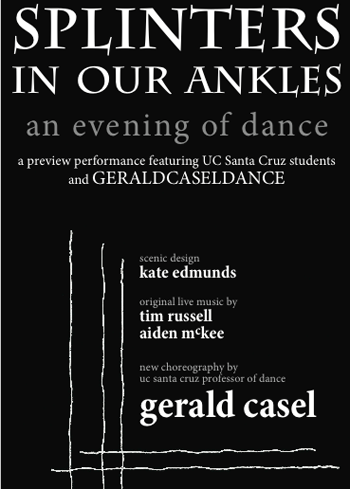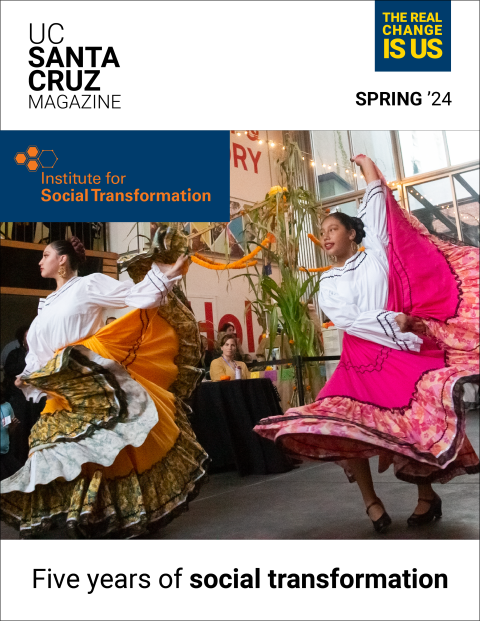Splinters in Our Ankles is UC Santa Cruz theater arts professor Gerald Casel’s choreographic response to what he calls "the collective cultural amnesia" about the Tinikling, the Philippine national dance.
Born in the Philippines and raised in California, Casel actually grew up with little knowledge of the popular dance.
But recently, his research took him back to the Philippines to dig into the historical context of the national dance, which originated during the Spanish Colonial occupation of the Philippines that began in the16th century.
“As a choreographer, I question the most famous and beloved traditional dance, Tinikling, and why it is represented in such a lively and festive way,” said Casel. “I argue that during the time it was being created, Filipinos were under Spanish colonial rule–-a violent past that is not discussed when this dance is presented.”
“I wanted to shed a light on this omission as 'cultural amnesia' to convey an alternative lens through which Filipino bodies can be represented and therefore not easily "exoticized" and easily "consumed" for entertainment.”
Casel said that he came up with the title of his new work, “Splinters in Our Ankles,” to suggest a physical description of the violence perpetrated against Filipinos by the Spanish colonists.
“Rice farmers who did not perform well were said to have been punished by their guards, who made them stand between two bamboo poles where their ankles were slammed,” Casel noted.
“By contrast, the Tinikling (whose name is derived from the 'tikling' bird) is a dance where two or more people beat bamboo poles against each other and on the ground to create a rhythmic pattern--while dancers jump through and dance around the poles to avoid being hit. This is meant to represent the farmers trying to catch their worst enemies, the pesky 'tikling'.”
“Splinters in Our Ankles is a reminder to go deeper, to know more about our history, so as not to be reduced by one example or representation,” he added.
On May 22–24 and May 28–31, Casel will present a preview of the work, an evening-length piece that will have its official premiere at San Francisco’s ODC Theater in December. Performances take place at the Mainstage Theater, located in the Theater Arts Center on the UC Santa Cruz campus.
The performers will include both student dancers and members of Casel's acclaimed San Francisco-based dance company. GERALDCASELDANCE.
But don’t expect to see an actual performance of the Philippine national dance. Casel said that the dancers will instead express their personal histories and identities through performance.
“People can expect to see a contemporary dance-theater piece with great physicality and rich detail,” Casel noted. “They will also hear text written by the performers, some singing, and lots of dancing. (Theater arts professor) Kate Edmunds has created an elegant, minimalist scenic design, and my two musical collaborators, Milwaukee-based Tim Russell and UCSC alumnus Aiden McKee have composed and will play live music.”
Casel, who joined the UC Santa Cruz Arts Division faculty in 2013, said that he hopes audiences will reflect on their own identities and histories, and continue to ask questions about who they are, what they do, and how their actions affect the world.
“I decided to focus on the Philippine National Dance, because I wanted to know more about my personal history,” said Casel. “As a first generation Filipino-American dancer and choreographer, it seemed to be the most appropriate area to generate ideas about a dance. Through my research, I realized how much I did not know about my own culture and Philippine history.”
Tickets to Splinters in Our Ankles are available at santacruztickets.com, the UCSC Ticket Office (831-549-2159), the Santa Cruz Civic box office (831-420-5260), and at the door.




